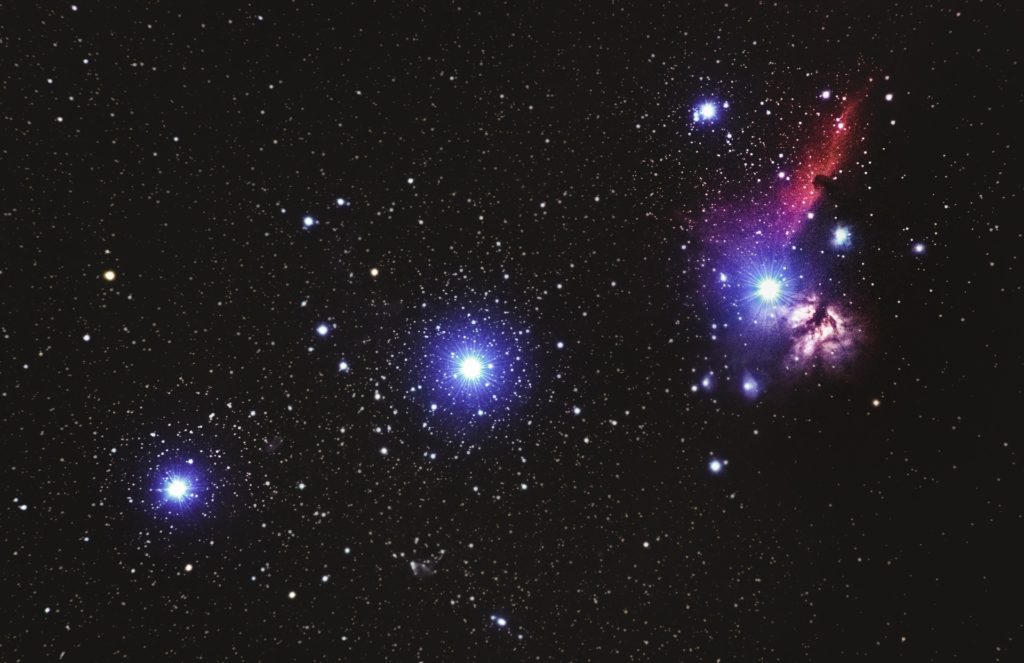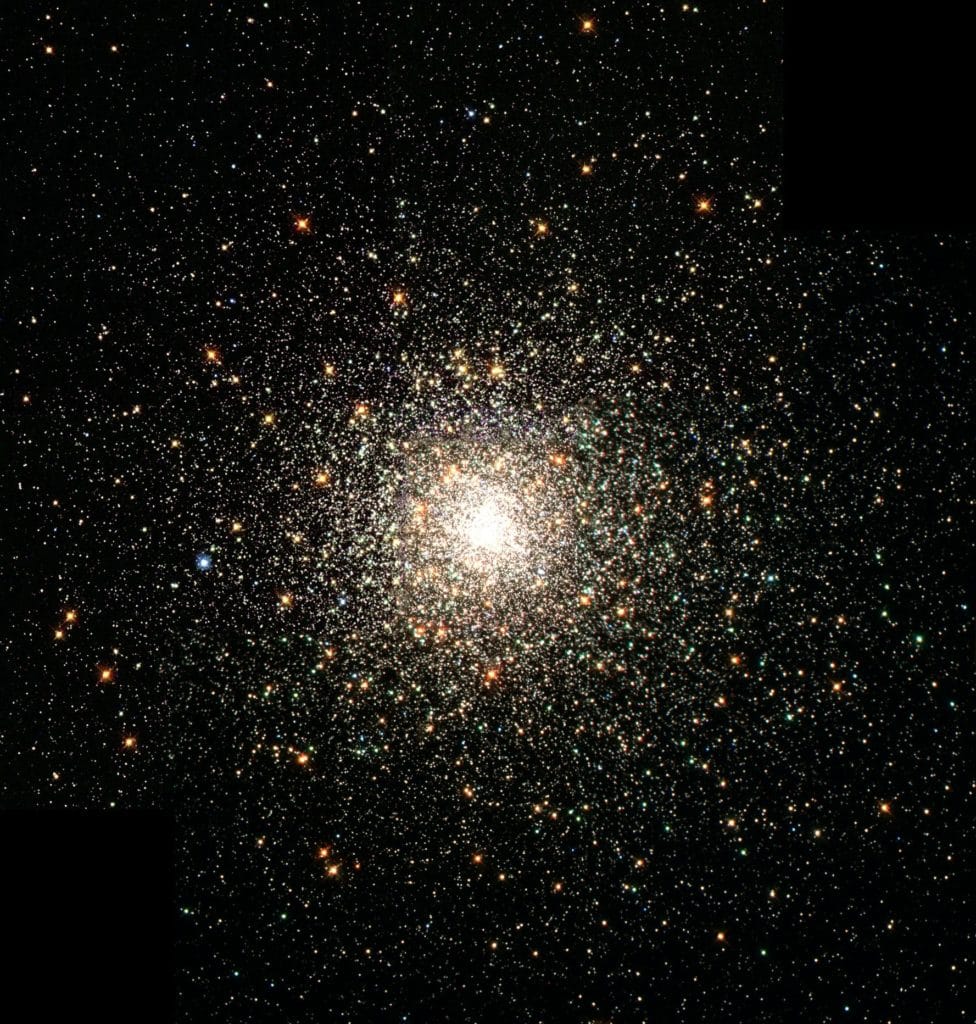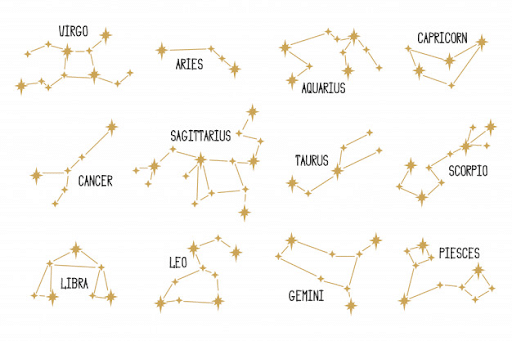Astrology is weird! For a system that talks a lot about the stars, it seems ironic that there is little mention of fixed stars in astrology. When people talk about astrology, they tend to gravitate towards examining the planets. Thus, stars often take the backseat in these discussions and examinations.
However, if you want to have a more holistic idea of what the cosmos have to say, you would do well to pay attention to the actual stars themselves.
Planets often have a gentle influence on our lives. While their effects may be far-reaching, it often manifests slowly over a long period of time, like months or years. Fixed stars tend to be more volatile than that because their influence comes suddenly and violently more often than not.
This volatility may be the reason why checking your charts seems to be off the mark at times. Perhaps the fixed stars in astrology are affecting the planets’ energies, and it might be high time for you to pay attention.
What are Fixed Stars in Astrology?

In a nutshell, fixed stars are any visible heavenly bodies of interest that aren’t a planet. For a more concrete explanation, we need to look at a few key concepts first.
The ancient Greeks believed that there was a celestial sphere covering the entire universe as they knew it. Their astrologers named this sphere the firmament. In this firmament, they determined the presence of “wandering stars,” which we now know as the seven other planets in our solar system. In some interpretations, the sun and the moon can also fall under this category.
On the other hand, there are the stars themselves, along with other heavenly bodies. The ancient astrologers believed that the stars are stuck on the firmament itself. This concept is how they got the name fixed stars in astrology.
How do the Fixed Stars in Astrology Manifest Their Energy
One thing to always remember is that fixed stars in astrology are their own thing. Each one has its own unique language and trying to figure out what it’s saying in the context of the solar system would leave you with cosmic gibberish.
The way to think about how the stars manifest their energy is that they do not send messages on their own. Instead, they modify the energy of the planets depending on their position.
Additionally, while the effects are relatively fleeting, always take into consideration that these fixed stars in astrology can magnify and alter a planet’s influence by a large margin. All in all, the brighter the star is and the closer it is to the ecliptic, the stronger its influence on the planet it aspects.
Important Things To Note While Reading Star Charts
If you’re looking to determine the influences of fixed stars in astrology, there are certain properties you need to look out for.
In general, fixed stars only have a direct influence depending on their position on the horizon. Their energy manifests most powerfully when they are either concurrent or parallel to a planet.
Aside from that, they have three main positions where they can have various effects.
- Rising above the horizon
- Setting below the horizon
- Crossing the local meridian (commonly called culminating)
Rising stars are usually youthful and punchy, and they set the tone and general direction for the chart. Setting stars, on the other hand, are more subtle in their influence. You may want to pay special attention to the details they provide as there may be clues hidden within them. Last but not least, culminating stars represent a maturing of its influence. The fixed star reveals its energies the most in this position.
For completion’s sake, you can also look at the more minor influential aspects like the trine and sextile, but this isn’t completely necessary. Whether or not this is important is a call you may have to make based on experience.
What are the Categories of Fixed Stars in Astrology?
Behenian Stars

The Behenian stars are 15 fixed stars that several ancient civilizations have considered as the most powerful fixed stars. Originating from the Arabic word “bahman” which means root, the word “Behenian” belies its status as one of the most influential heavenly bodies.
These stars find frequent use throughout history in the practice of magic and astrology. You can find these stars along the Zodiac circle as they more or less sit evenly between each segment.
Algol
Constellation: Perseus (beta)
Stone: Diamond
Herb: Black Hellebore, Mugwort
Alcyone (Pleiades)
Constellation: Taurus (eta)
Stone: Rock crystal
Herb: Fennel
Aldebaran
Constellation: Taurus (alpha)
Stone: Carbuncle / Ruby
Herb: Milky Thistle
Capella
Constellation: Auriga (alpha)
Stone: Sapphire
Herb: Horehound
Sirius
Constellation: Canis Major (alpha)
Stone: Beryl
Herb: Savine, Juniper
Procyon
Constellation: Canis Minor (alpha)
Stone: Agate
Herb: Heliotrope
Regulus
Constellation: Leo (alpha)
Stone: Granite
Herb: Celandine
Alkaid
Constellation: Ursa Major (eta)
Stone: Magnet
Herb: Chicory
Algorab
Constellation: Corvus (delta)
Stone: Onyx
Herb: Corvus (delta)
Spica
Constellation: Virgo (alpha)
Stone: Emerald
Herb: Sage
Arcturus
Constellation: Bootes (alpha)
Stone: Jasper
Herb: Plantain
Alphecca
Constellation: Corona Borealis (alpha)
Stone: Topaz
Herb: Rosemary
Antares
Constellation: Scorpius (alpha)
Stone: Sardonyx, Amethyst
Herb: Birthwort
Vega
Constellation: Lyra (alpha)
Stone: Chrysolite
Herb: Savory
Deneb Algedi
Constellation: Capricornus (delta)
Stone: Chalcedony
Herb: Marjoram
Messier Objects

This type of fixed star is huge formations of stars in a cluster. This category also includes nebulae and galaxies. In modern astronomy, astrologers call these heavenly bodies Messier objects.
Traditionally speaking, these cosmic objects are bad news. Ancient astrologers always considered them as harbingers of physical disabilities like blindness, among others.
Nowadays, astrologers no longer subscribe to this particular interpretation of nebulae and star clusters. Instead, they associate these heavenly bodies with a lack of foresight, an inability to make decisions, and a general weakness of sight, be it physical or otherwise.
Other Stars
Don’t discount these stars just because they’re not in any major category.
Despite being part of the “others” category, these fixed stars are important in their own right. These stars are well-documented by astrologers, and no one can deny their influence.
Astrologers often take note of them while doing their analyses. Points of interest include when these stars rise above the horizon, culminate, or set.
Stars like Pollux, Altair, and Rigel fall under this category.
What are constellations?
Constellations are essentially regular patterns of fixed stars in astrology.

While the fixed stars do seem to move across the sky, these patterns stay constant throughout its motion. Technically speaking, the constellations do move just a little bit. But this movement is so slow that it has little to no bearing on almost every reading and is irrelevant to our purposes.
There are 12 main constellations, and they share the same names as the 12 Zodiac signs. Please be careful as they are different entities despite having the same name.
The Zodiac signs are 30-degree increments that divide the ecliptic. For this to make sense, we need to talk about the ecliptic. The ecliptic is a circular path on the celestial sphere that the sun crosses every year. Note that this path can find its origin on how the sun seems to move from the perspective of the earth.
Interestingly, the Zodiac signs are a purely mathematical concept. If you asked someone to look up to the sky and point out the Zodiac signs, they would probably have a field day finding it as they do not actually exist in nature. Of course, the Zodiac circle they create is vital as they interact with fixed stars in astrology and constellations in a big way.
The constellations, however, are natural phenomena that anyone can find and see through various methods. Take note that many other constellations, even those recognized by modern astronomy, can affect your readings.
The most popular constellations that astrologers use in their predictions are as follows:
- Capricorn
- Aquarius
- Pisces
- Aries
- Taurus
- Gemini
- Cancer
- Leo
- Virgo
- Libra
- Scorpio
- Sagittarius
Conclusions
When it comes to astrology as a whole, fixed stars usually find themselves sidelined. Most people often explore more general and far-reaching influencers in the cosmos like the sun, the moon, and the planets.
While these heavenly guides are perfectly valid, and their information still reliable despite its generalization, sometimes you may find yourself wanting. Perhaps the forecasts you have found are lacking in nuance or just plain don’t hit their mark.
In times like these, fixed stars in astrology can truly shine (no pun intended). These heavenly bodies are truly powerful cosmic influences. It would do you well not to ignore them as their energies can manifest quite suddenly and with an intensity that may be more than you bargained for.
